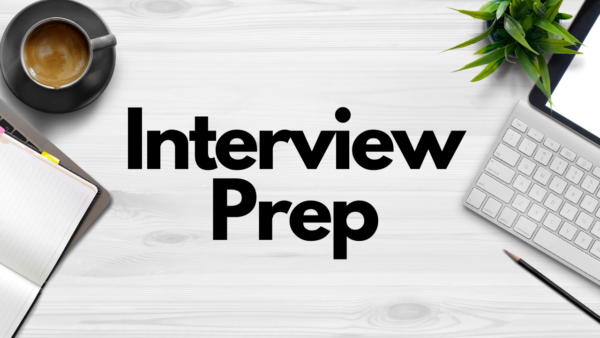You have got the interview, so the last thing you want to do is make a silly mistake that affects you getting the job.
Not doing your research
One of the biggest mistakes is going into an interview unprepared. This could be a combination of failing to research the company, not taking the time to understand the role, or not knowing who you’re meeting. This can also include not planning out what you’re going to talk about or having any questions to ask.
Many job seekers think they can ‘wing it,’ however the worst thing you can do is go into an interview under-prepared as the odds are you will be caught out and look under-prepared.
Talking about the wrong things
A similar mistake is not talking about topics or experiences that highlight your experience and knowledge. It is important to give detailed examples of relevant things you know and experiences that you have had so you can speak authoritatively about the subject and showcase your knowledge.
Make a connection between your CV and the interview
Your CV acts as a prompt for the conversation in your interview so make sure that you know what you have written and that you can back it up with facts. Therefore, don’t put anything on your CV that you’re not prepared to talk about or can’t support with facts. Instead highlight things that showcase your skills in the best light.
Not listening
Very often candidates make the mistake of going into an interview with a pre-prepared script and just then answer questions in a parrot fashion without really listening to the question. It is important to understand what the interviewer is asking and tailor your answer to the question rather than thinking you can rely on one-size-fits-all answers.
It’s often good to take a moment to think about your answer as it shows that you have listened to the question and are not fazed or panicking. Taking a sip of water and a moment to process the question shows you have poise and confidence.
Turning up late
This is a big no-no and can often happen if you’ve not taken the time to confirm and plan your route or know exactly where you’ve got to go. If possible, you should always allow yourself at least 10 to 15 minutes in case there are any issues getting to the venue, and you don’t end up arriving flustered.
Forgetting to communicate
People buy people, and it is important to break the ice and briefly build some repour with the interviewer(s). Often when people are nervous or focused on the task, they overlook the basic communication essentials that allow human interaction to run smoothly. This also applies to body language like maintaining good eye contact and a firm handshake.
You need to build a rapport but also have a bit of social awareness. If your too formal you won’t build any rapport and whilst your interviewer might believe you can do the job, they also need to be able to see themselves working with you. On the flip side it is important to not come across too relaxed and flippant, so the interviewer(s) knows you are serious about the job. Often you can take your guide from the interviewer(s) body language and conversation.
Not asking questions
It is very common at the end of any interview you get the question “Do you have any questions”. Where possible you should avoid saying “No” and have a selection of positive questions that are not too self-centred. Often bringing up something up that has been raised in the interview and turning it back on the interviewer is a good ploy ie: “It sounds like you’ve got some really good clients – what are your plans for developing them in the future?”. This will engage the interviewer and get them talking about what they care about.
Dress sense and hygiene
“You can have anything in life if you dress for it”. Well maybe not everything but looking the part will go a long way to opening doors. Employers will want you to represent their company, and therefore they want to know that you care about your own self-image. It is important though that it is relevant to the company – for example, if you know the company have a smart-casual or business attire dress code then dress accordingly. If you don’t know, then play safe and dress smart.
Also, it is important to not overlook your personal hygiene as this can have a big impact on the impression you make. Smell is a strong factor in human interaction and body odour, smelling of cigarette smoke or a very strong cologne can be very off putting. If you’re worried about this, ask a friend or partner to check before you go in.

